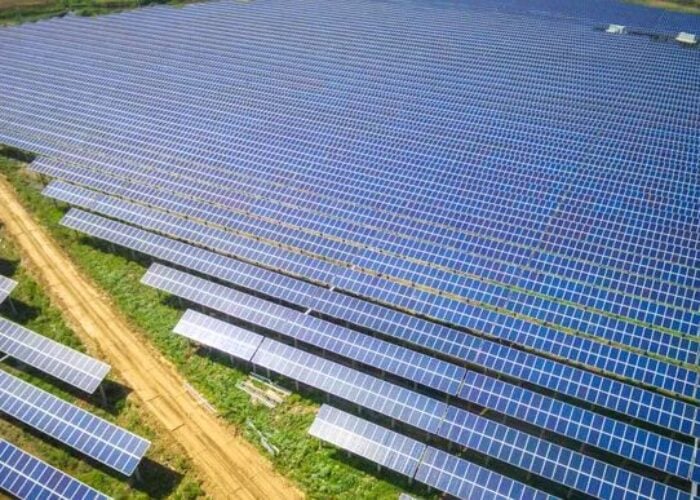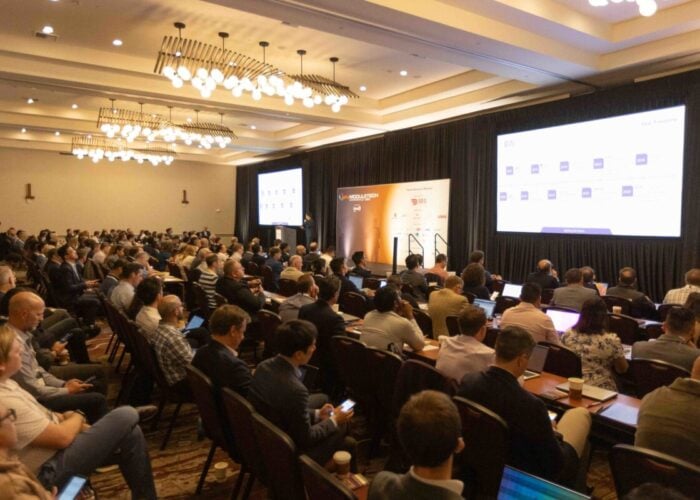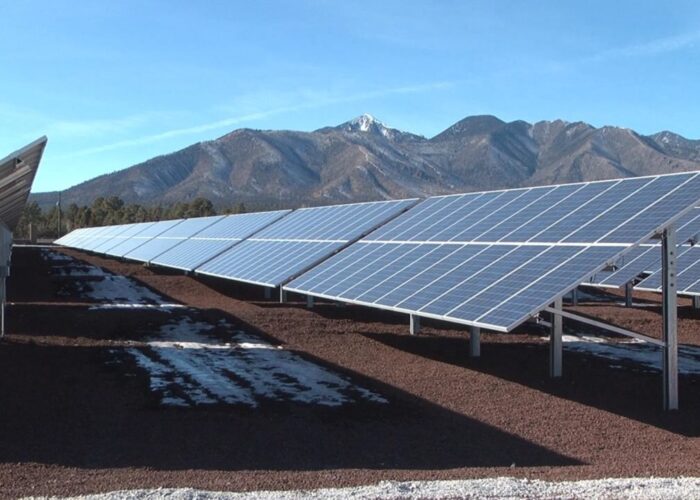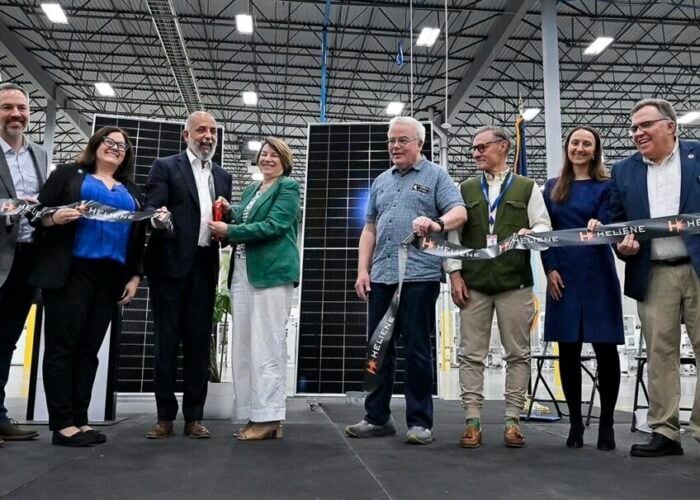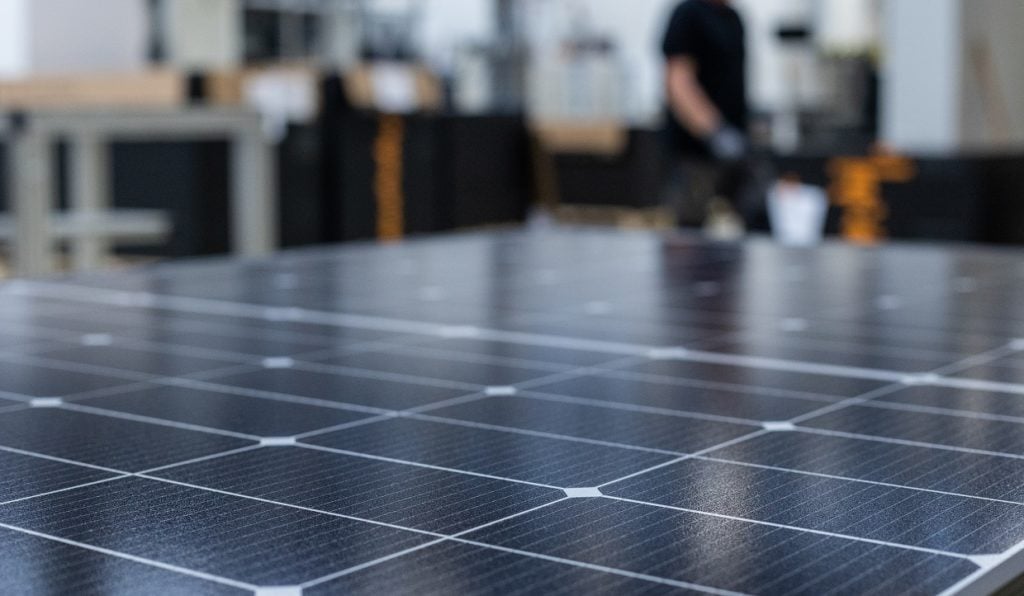
European solar PV manufacturers struggling with soaring electricity prices have flagged concerns that the continent is falling behind the US and India in terms of policy support for the sector.
During a webinar hosted yesterday by trade body SolarPower Europe, decision-makers and industry experts discussed the current state of play for PV supply chains and how policy developments are impacting European solar manufacturing.
Unlock unlimited access for 12 whole months of distinctive global analysis
Photovoltaics International is now included.
- Regular insight and analysis of the industry’s biggest developments
- In-depth interviews with the industry’s leading figures
- Unlimited digital access to the PV Tech Power journal catalogue
- Unlimited digital access to the Photovoltaics International journal catalogue
- Access to more than 1,000 technical papers
- Discounts on Solar Media’s portfolio of events, in-person and virtual
With PV manufacturing support included in the US’s Inflation Reduction Act (IRA) and India aiming to add 65GW of PV module manufacturing capacity through an extended incentive scheme, the key takeaway from the discussion is that European players need more support to rapidly scale and better compete.
“I’m a little bit concerned that the precise and tangible schemes we have seen in India and US are somehow overtaking the EU effort. And I’m really concerned that the EU may miss the train here,” said Christian Westermeier, vice president of marketing, sales and application engineering at Wacker Polysilicon.
According to Westermeier, Wacker Polysilicon has around 80,000 tonnes of polysilicon capacity, which translates into approximately 26GW of PV modules, if the entire capacity were used for that.
While the company’s polysilicon production is 75% in Germany and 25% in the US, most of the material is shipped to Asia. “At the moment, for us as a polysilicon manufacturer, there is no market in Europe. The same is true for the US,” Westermeier said.
One European company that is expanding its footprint in the US to take advantage of the IRA is heterojunction cell and module manufacturer Meyer Burger, which is aiming to have 1.5GW of module production in both Germany and the US by the end of 2024.
Moritz Borgmann, chief commercial officer at Meyer Burger, said during the webinar that “it makes a lot of sense to invest in the US. But currently is simply not attractive, comparatively, to invest in Europe.”
He added that support in the IRA “is just so concrete, so simple, so transparent and so massive that it is very difficult for us in this current environment, unless things really change in the EU, to continue investing at the scale that is required”.
The potential for the US to secure solar investment at the expense of European players was noted by Jacek Truszczynski, deputy head of unit, DG GROW, at the European Commission (EC).
Questioned on whether the IRA raises the stakes and requires the EC to do something in addition to its current plans, Truszczynski said: “For sure, it’s a big challenge for us, because it will drag investors there. And so if it drags investors there, it drags them away from here.”
Another headwind facing European solar manufacturers is high power prices, with consultancy Rystad Energy warning last week that 35GW of planned PV manufacturing projects in the continent are at risk of being mothballed.
Ignacio Asenjo, policy officer at the EC’s Directorate-General for Energy, said high electricity prices are a short-term concern, adding: “Maybe we have a bad situation right now that is linked to war in the continent and to fossil fuel dependency, but in the medium term we know that prices are going to go down.”
However, Wacker Polysilicon’s Westermeier warned that even if electricity prices do fall in the next two years to prices seen before the current energy crisis, “that’s too late for many industries companies”.
He said that some silicon metal producers in Europe have stopped production because electricity prices are too high for them, adding: “And as long as this situation continues, it will be extremely difficult for them to restart again.”
Policy solutions
The webinar took place the same day as the EC formally endorsed a new Solar Photovoltaic Industry Alliance to help the EU reach 30GW of annual solar manufacturing capacity by 2025.
Set to be launched by the end of the year, the alliance will deliver an action plan for Europe’s solar value chain and engage with the EU and member states on issues such as technology, access to finance and supply chain resilience.
According to Truszczynski, the initiative “will not be a talking shop for debating possible policy avenues, but it will be a very concrete initiative”.
He said the alliance will allow the solar industry to have access to EU policymakers and identify things that are hampering the development of the value chain, such as import duties or a lack of standards.
Kicking off work on the alliance by the EC “marks an important step in creating scaled and long-term competitive PV manufacturing capacities in Europe”, said the European Solar Manufacturing Council (ESMC) in a statement yesterday.
An organisation that represents the interests of the European PV manufacturing industry, the ESMC said that in the context of global competition – including the US’s move to extensively support PV manufacturing – the EU should deliver as fast as possible its own PV manufacturing support scheme that would be attractive for local PV manufacturing companies and potential investors.
The ESMC calls for support in four main areas: scaling and commercialisation of PV innovations, lowering capital costs, securing off-take agreements among PV producers and final consumers, and optimising operational costs once manufacturing capacities are established.
Responding to a suggestion during the webinar that EU players must innovate, Meyer Burger’s Borgmann said insisting on continued innovation means “kicking the can down the road, and we’re just trying to find some sort of pie-in-the-sky scenario where magically we become competitive through innovation.
“What we need to be aware is that we need the scale. And even as Meyer Burger with an innovative product, we are struggling mightily to be competitive with the current entirely insufficient industrial ecosystem here in Europe and with the regulatory environment.”
Borgmann added that European solar manufacturers don’t want to be living off subsidies in the long term, they “just need the initial support… Currently, we’re just showing up to a gunfight with a knife, and it’s not even a proper knife, it’s a paper knife – and that’s just not going to cut it. We need to get to the scale and then we can be competitive.”



